A TRADITIONAL FOODS CAMP IN ENOCH, ALBERTA
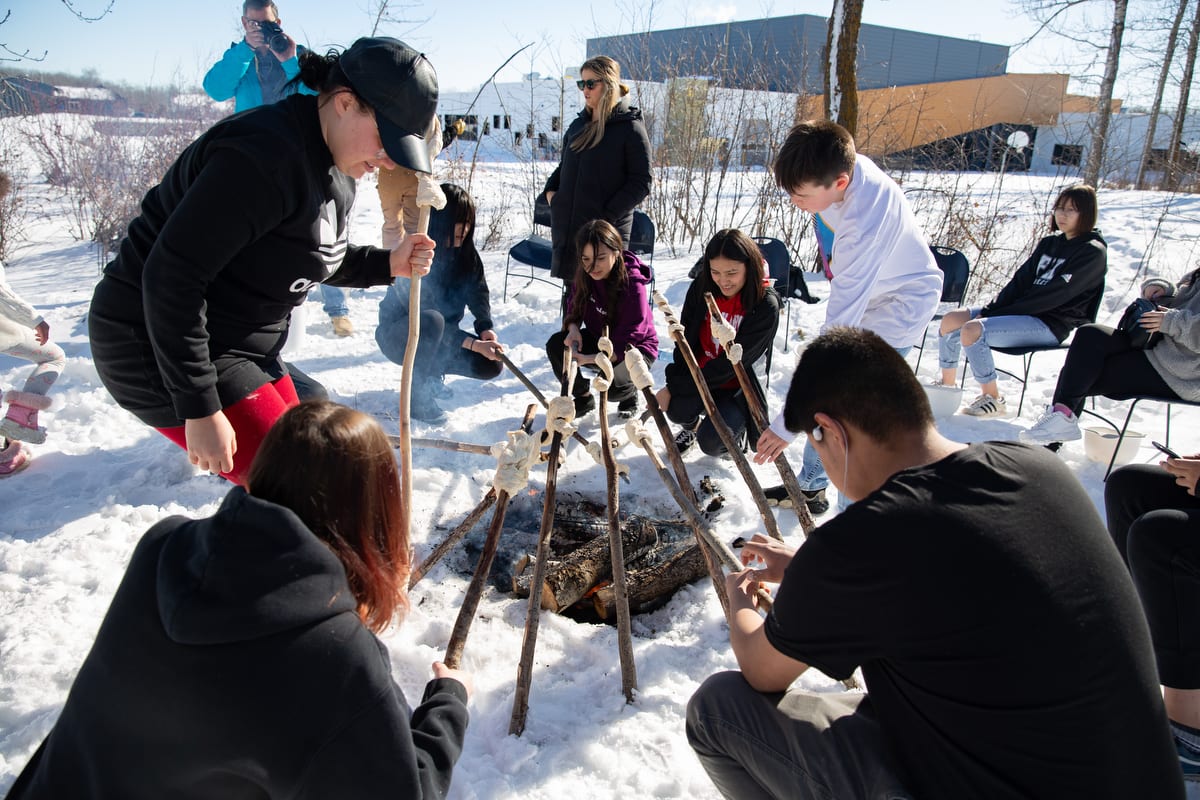
Students cook bannock over an open fire.
Written by Chelsea Cattroll, Ever Active Schools
Once upon a time, in a not-so-distant past, Ever Active Schools and Edmonton Public School Board (EPSB) launched a project called Miyomahchihowin (“In Good Health” in Cree). This project aimed to support pathways to employment and post-secondary education for Indigenous youth. Fast forward a few years and new iterations of the project, and In Good Health expanded to serve students facing barriers through industry-standard certifications and high school credits over a three-day long camp.
In Enoch, Alberta, just East of Edmonton, many voices were turning to the importance of food on multiple levels within the community: food security, eating for well-being, safe food handling, and reconnecting to traditional harvesting methods. It quickly became apparent that people in the community were hungry for a transmission of knowledge of traditional foods, for both the youth and the adults. We decided to run a Traditional Foods Camp through In Good Health, meaning high school students would earn credits and certifications in exchange for three days of hands-on learning. We decided on teaching the students how to process various wild game from harvest to table, so that they would gain a deeper understanding of the ways different animals can be utilized and how to handle harvested animals with care and respect.
All we had left to do was find a way to connect that main idea of preparing traditional foods to employment opportunities within the community. In round table conversations, we learned that safe food handling certificates were essential to not only jobs in the community, but to certain community functions such as the pow wow and feasts. There it was: community needs connected with certifications to bridge high school students with employment within the community.
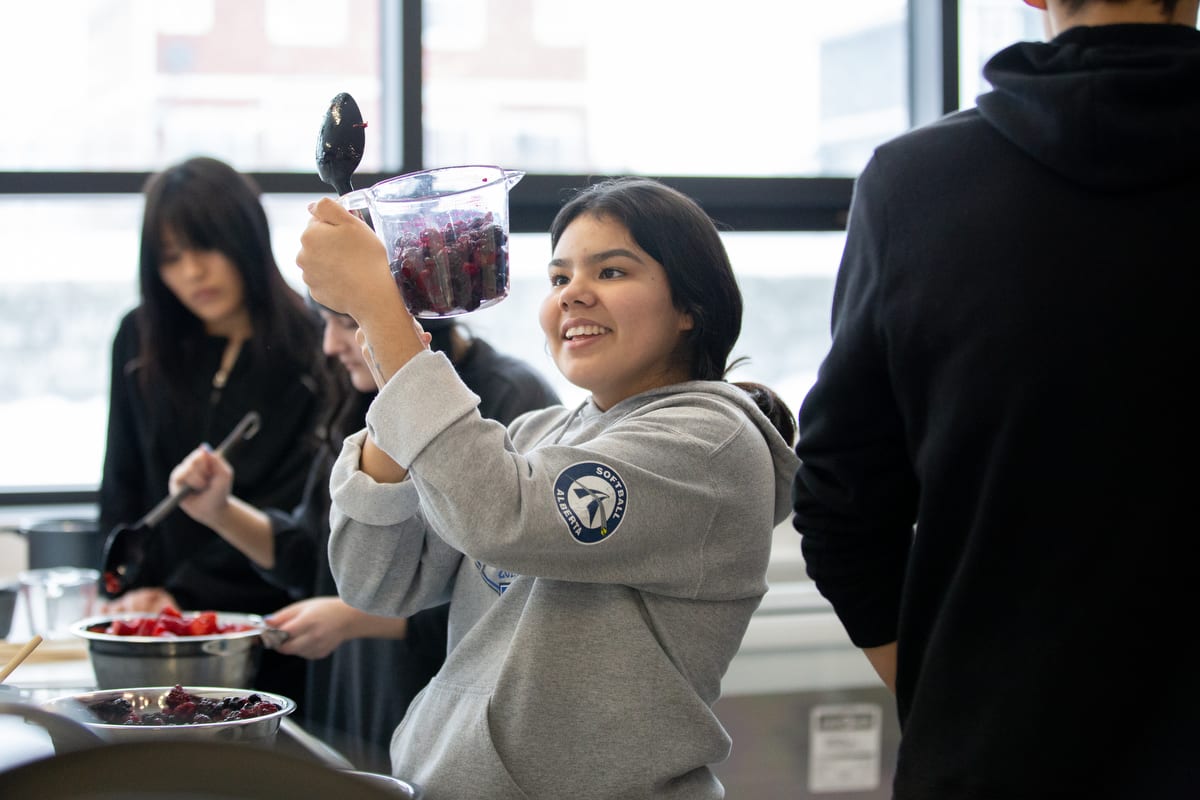
A student examines her homemade jam ingredients.
Thirteen high school students from Maskêkosak Kiskinomâtowikamik School joined us on a Friday to learn about safe food handling procedures. They moved through modules with a local dietitian to work towards completing a certificate in Safe Food Handling, and, in an exciting turn of events, I had caught a rabbit in one of my snares and was able to demonstrate for the students how to skin a rabbit. It was not your average Friday afternoon, but a memorable one for sure.
The following day, students experienced a full, delicious day. They learned how to prepare homemade bannock in the oven, scale and gut lake whitefish, prepare moose meat stew, pluck and singe ducks, and can homemade jam. The students exceeded all expectations set of them in terms of respect: they worked in pairs to prepare their bannock, laughing and smiling while they mixed ingredients; although you might expect some fooling around with teenagers and fish, the students showed only focus and an eagerness to do well; while plucking ducks, they worked diligently to have the cleanest duck they could.
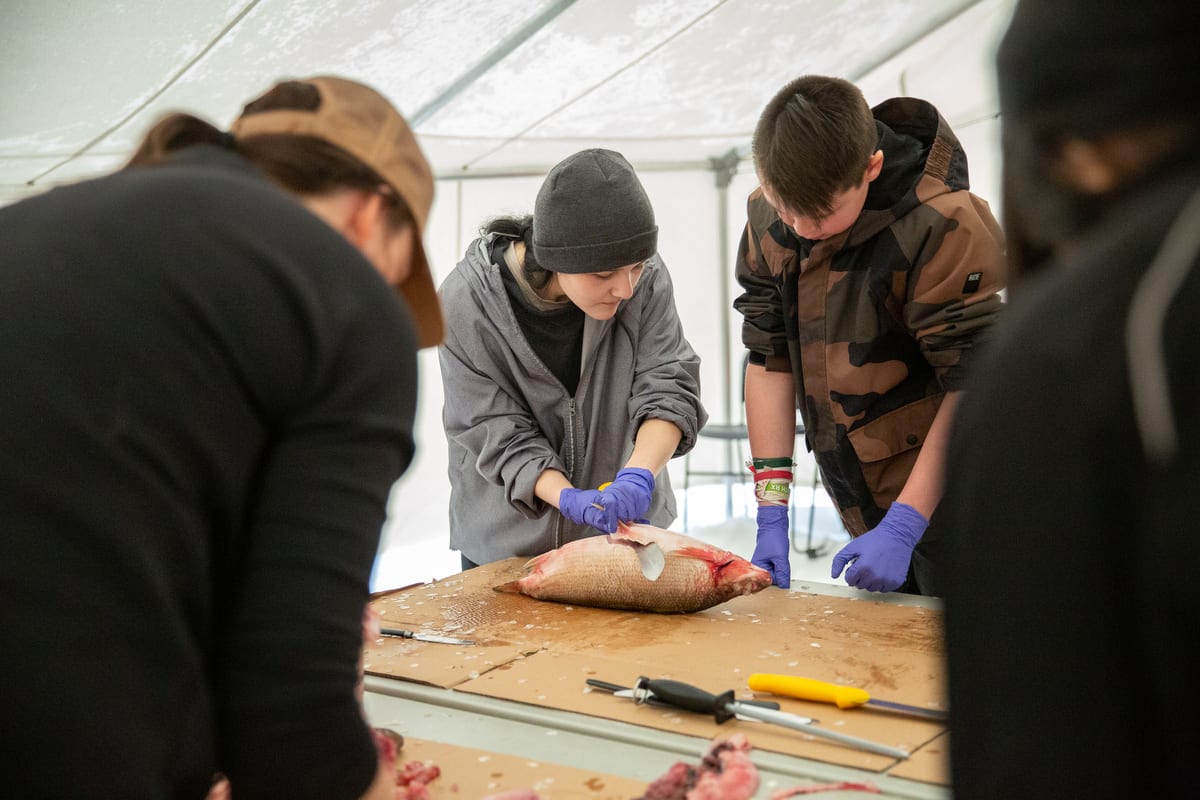
Students learn to descale and gut whitefish.
On Sunday, ready to close out a fast-paced weekend, students returned to turn grind leftover moose meat into chili for lunch, make more bannock but this time, roast it over an open fire on a stick, prepare rice pudding, and learn how to bake the fish they had prepared the previous day.
The many staff involved in the camp were incredibly proud of the students and their dedication. “Overall, the camp was a huge success,” said Raychel Graham, a guest instructor who taught the students everything they prepared in the kitchen. “It gave students the ability to integrate traditional and modern skills in everyday life.”
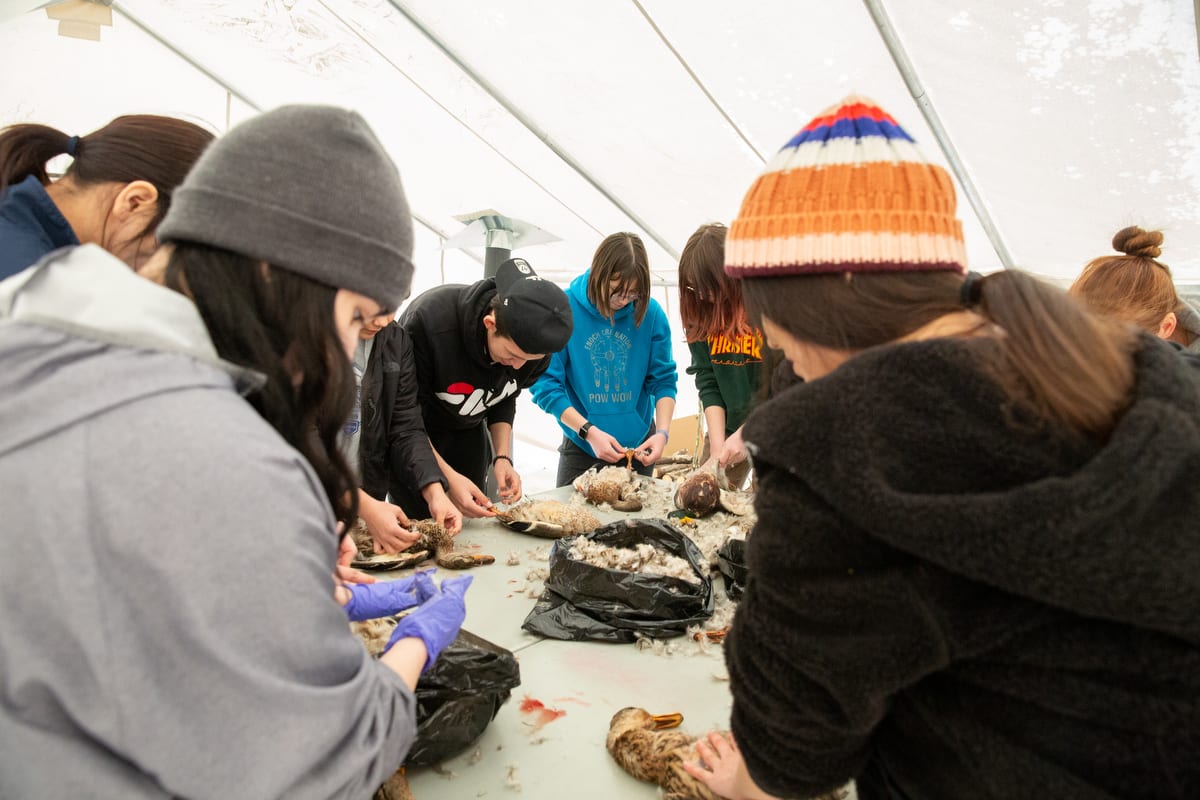
Students pluck feathers from ducks.
A highlight for me was the success of one student in particular. She had approached me prior to the camp to speak of her dietary needs as a vegetarian — she wasn’t sure if the camp was right for her, given that we would be processing meats. I assured her that she was under no obligation to eat what she prepared, so long as the animal she was working with was handled with care and respect. Her permission slip was one of the last to come in, and I honestly wasn’t sure that she would show up.
Not only did she handle the food with care and respect, she was also extremely diligent about ensuring she did things properly. We were transitioning from the outdoor outfitters tent where we were plucking and singeing ducks to move inside to bannock, and she insisted on staying to properly finish her duck. At the end of the camp we sent students home with the food they had prepared, and she was so excited to take home the duck that she had prepared – she actually took three! I ran into her a few days later at the school and she told me how she gifted the ducks to her grandfather. She beamed with excitement telling me how pleased her grandfather was that she had brought them home and how happy it had made him to see her learning to process wild game.
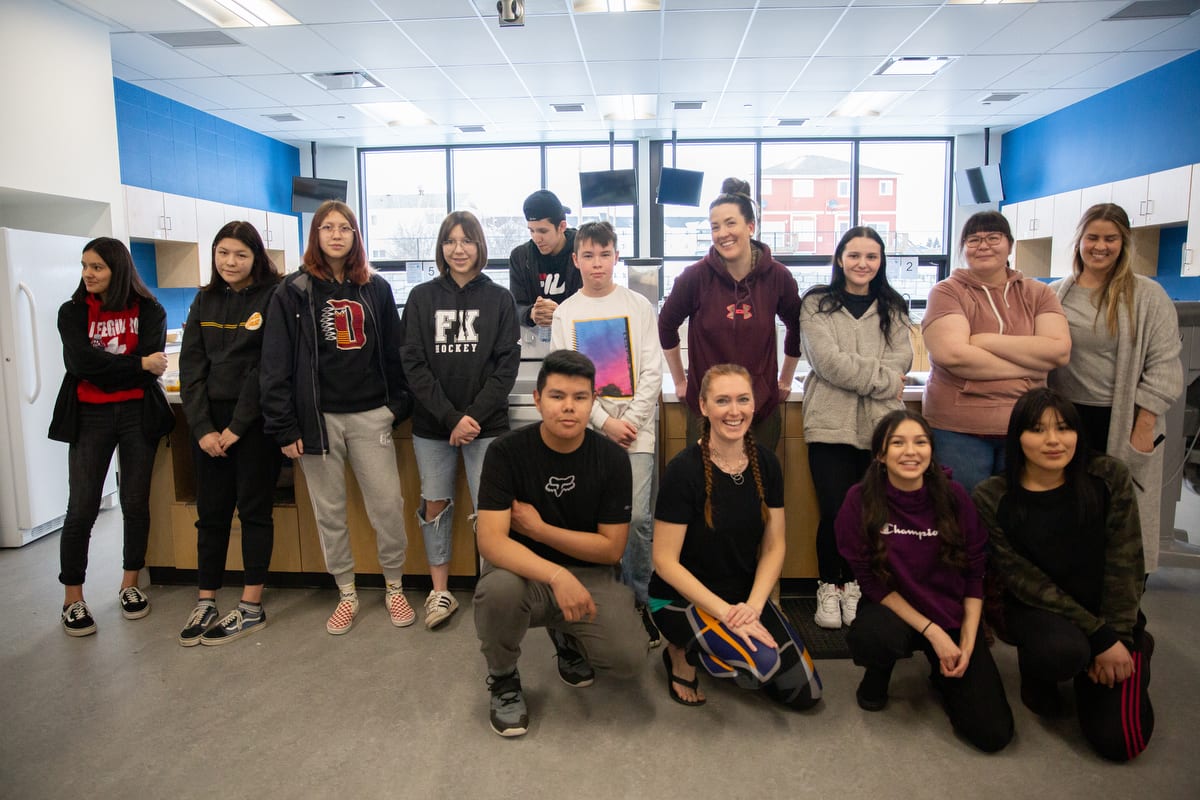
The students and instructors who attended the Traditional Foods Camp pose for a photo at the end of the weekend.
Thank you to RBC Future Launch for funding the In Good Health work that made this camp possible. Thank you to Raychel Graham for teaching culinary skills with such grace. Thank you to Fatheema Subhan for taking students through their food handling certifications with patience and kindness. Thank you to all the teaching staff, to Enoch First Nation, to Maskêkosak Kiskinomâtowikamik School and everyone else who came together to provide this opportunity to our students. And lastly, thank you to the students who showed up every day to put in the work. You blew us all away with your dedication and respect.
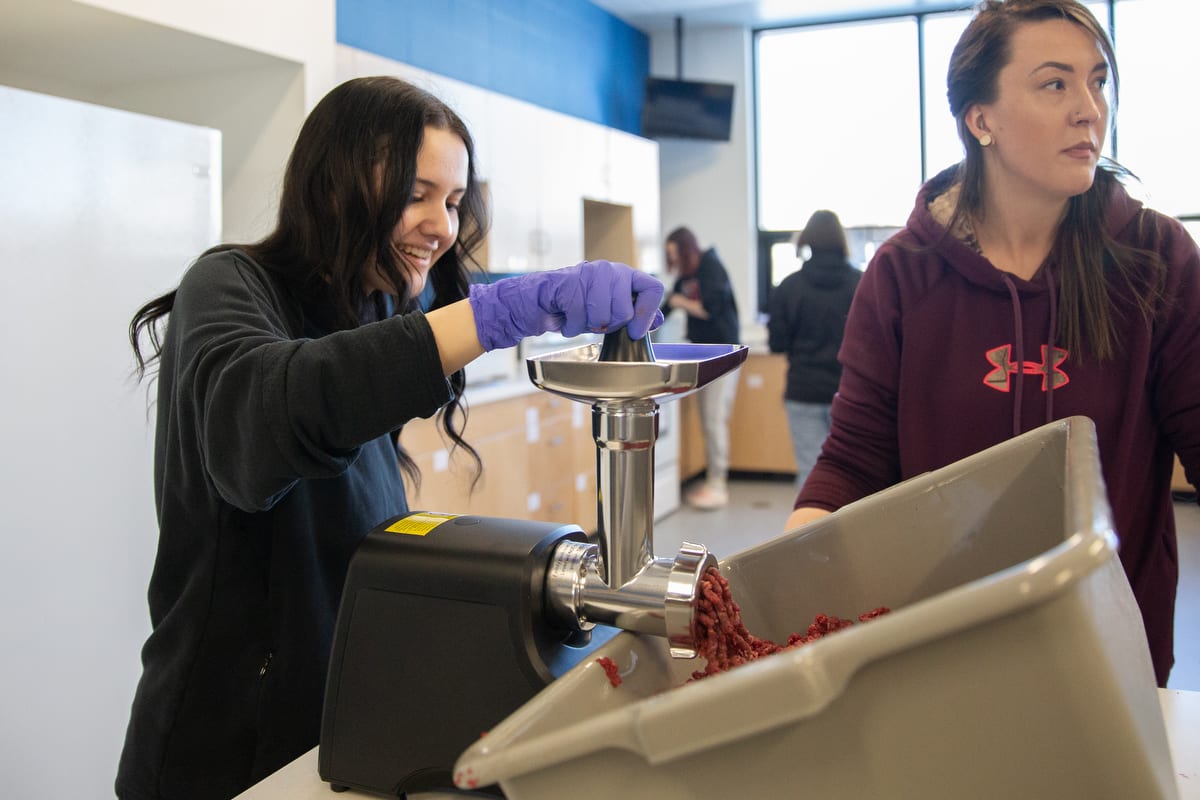
A student grinds moose meat to be used in chili for lunch.
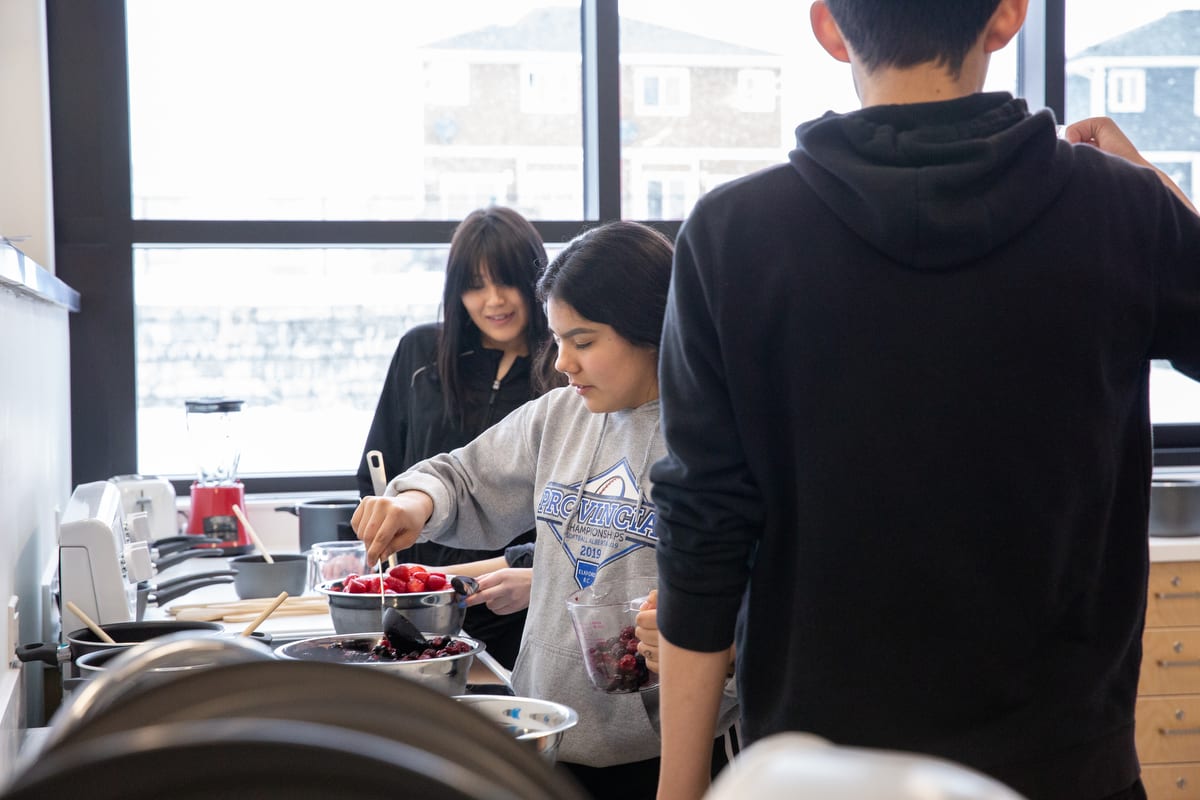
A student scoops berries into a measuring cup to make homemade jam.
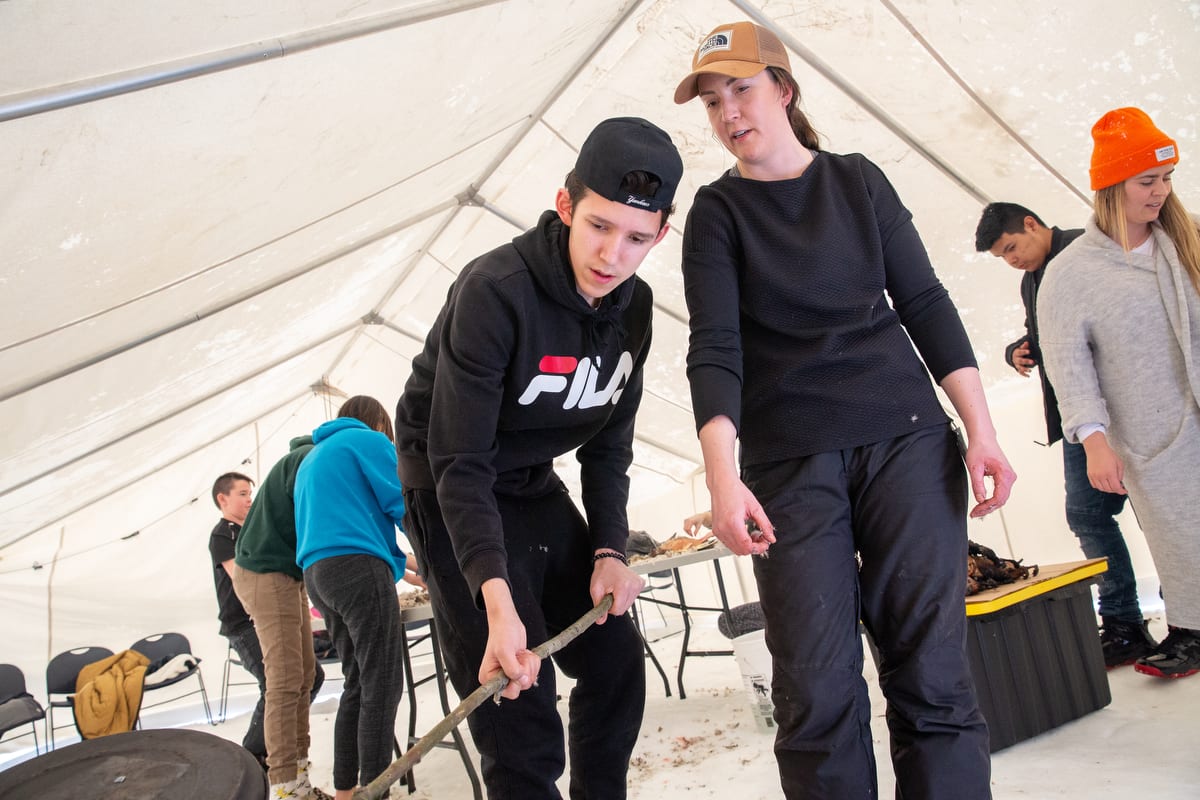
A student learns how to singe the remaining feathers off of a duck.
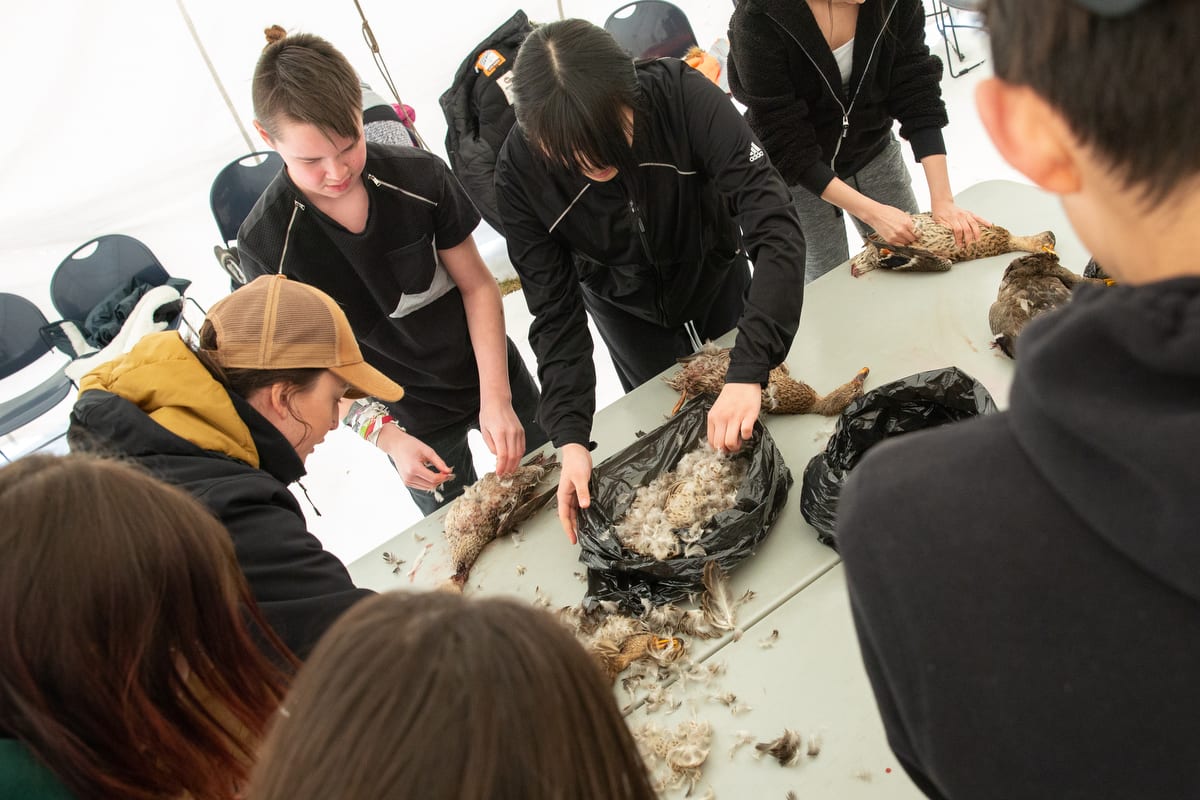
A student places duck feathers into a bag to be used elsewhere.
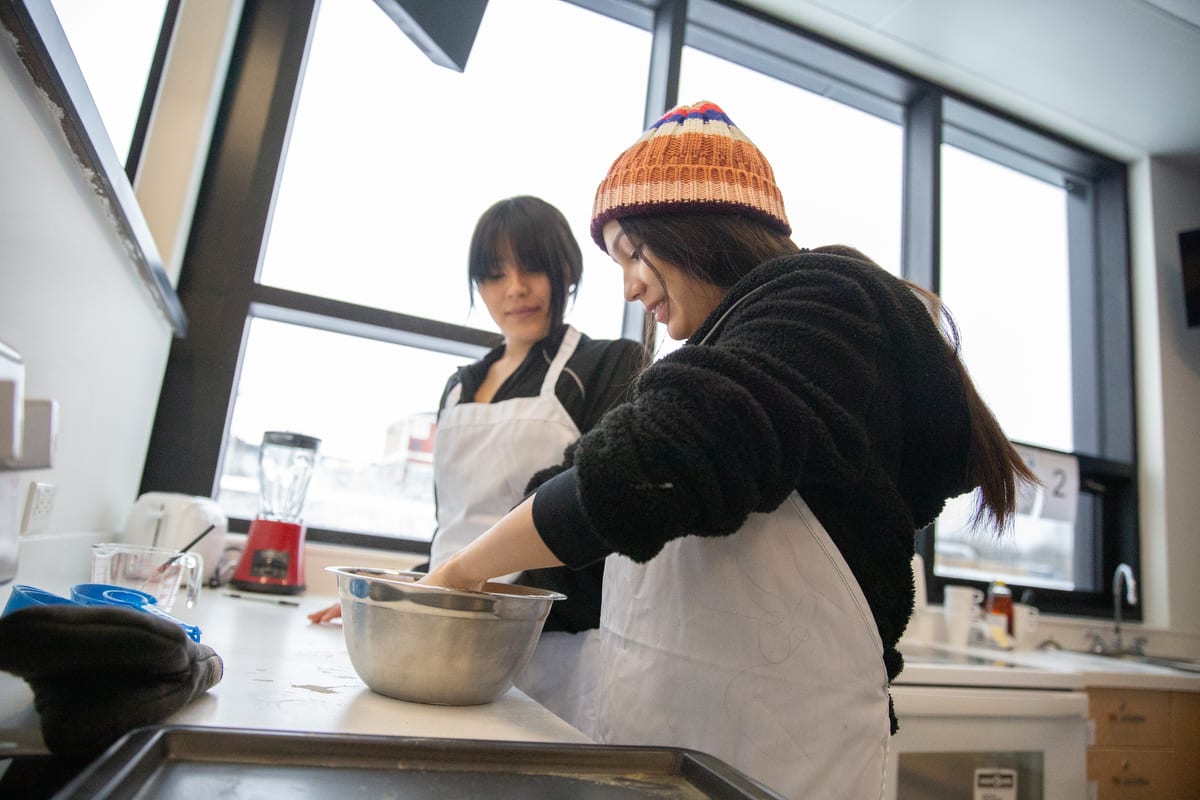
Two students work together to make bannock.
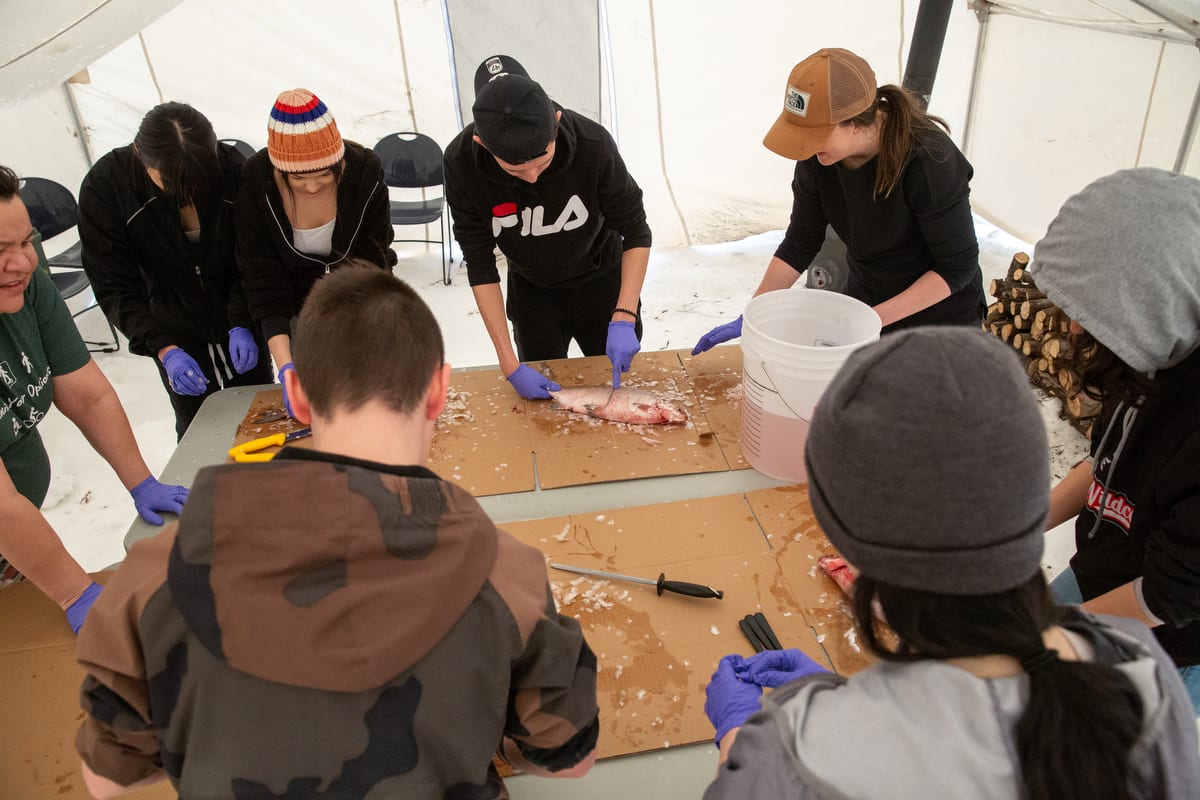
A group of students gather around to a table to learn how to descale and gut lake whitefish.


